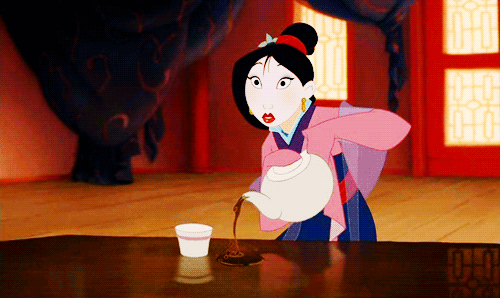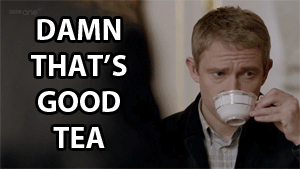
Babulal Gaur, Madhya Pradesh’s Home Minister, said,
“Rape is a mental disorder. Rapists do not inform police or government that they are going to rape. It cannot be curbed because it’s a mental disorder problem. We could have acted on motorists if they do not wear helmet. How can we prevent rape as it happens at a secluded place? This is a social crime which depends on men and women. Sometimes it’s right, sometimes it’s wrong.”The Bharatiya Janata Party (BJP) has ostracised these remarks calling them the politicians ‘personal view and not in any way representative of the party’, but is that enough? Should a person, pledged to preserving law and order, be given the authority or liberty to pass such irresponsible remarks? Can such statements be legitimised under the banner of freedom of speech? Is this tacit permission and acceptance of a dangerous rape culture rampant in Indian society? Is this how a person in position of power is supposed to act? Are these the kind of role-models we want our kids to be imitating? Also noteworthy is the fact that a statement is yet to be made by the Indian prime minister about the recent rape of two teenage girls in Uttar Pradesh (UP). On the international front though, the series of sexual transgressions in India has been met by clamour and the UN has condemned the heinous indulgence. In another episode, Mulayam Singh Yadav, head of the regional Samajwadi Party who runs UP, attempted to chastise legal charges that foresee the death penalty for gang rape in his own nonsensical manner saying,
“When boys and girls have differences, the girl gives a statement that 'the boy raped me,' and that poor boy gets a death sentence.”This string of insensitive statements made by Indian leaders is nothing new. These politicians have been seen giving the green signal to the objectification of women earlier too. Have you forgotten the time Laxman Savadi, Karnataka state minister for cooperation, was caught on camera sharing a porn clip during assembly talks with his colleague, CC Patil who, ironically, was the welfare minister for women and child development at the time? While Mr Yadav could argue that boys make ‘mistakes’, such mistakes should not be made whilst sitting in the state assembly, or should it? Unsurprisingly, like his father Akhilesh Yadav, Chief Minister of UP, also shares a very similar view on rape. Complaining about how the media is infatuated with UP and its problems, he said rape happens everywhere and all the media has to do is Google it and get the figures. Thank you Mr Akhilesh for enlightening us about the existence of... Google was it? Perhaps, while Googling these figures, the public will come across the alarming figures demonstrating how violent crimes touched a high of 33,824 incidents in 2012, including nearly 2,000 rapes and 4,966 murders under your governance. And while we are at it, let’s not blame the media for throwing light on a topic that otherwise, probably due to your immense efforts, would have been conveniently swept under the rug. Instead of attacking the messenger, try correcting yourself and stop shirking your responsibilities towards the men and women around you. Next up in line is Ramsevak Paikra, a Chhattisgarh minister who manages law enforcement. He said,
“Such incidents (rapes) do not happen deliberately. These kinds of incidents happen accidentally.”In India, rape is reported every 21 minutes. While that may be an accident for you Mr Paikra, is the pint-sized conviction rate, of 26%, for rape cases in India, also by accident? Another alarming aspect in these rape cases is that the Dalits, a mixed population in India that was traditionally regarded as the ‘untouchables’ have been routinely raped by the upper castes. Despite efforts being made to improve this situation of caste discrimination, the steps taken are, evidently, not enough. It is estimated that a crime is committed against a person from the Dalit caste every 18 minutes. In a land where rape is on an alarming rise, politicians who do not respect women, and are so out rightly insensitive about the issues plaguing women in society, are a part of the problem - not the solution. The towering sexual violence in India will never be stemmed if leaders, responsible for ensuring law and order, have a mentality that protects rapists.


 Photo: Ali Raza Jafri[/caption]
[caption id="" align="alignnone" width="600"]
Photo: Ali Raza Jafri[/caption]
[caption id="" align="alignnone" width="600"] Photo: Ali Raza Jafri[/caption]
Photo: Ali Raza Jafri[/caption]
 Photo: Ali Raza Jafri[/caption]
Soon after this project was launched, domestic expatriates and families of diplomats began to show a keen interest in purchasing the products of Thatta Khedona as souvenirs from Pakistan and within a few years, these locally handmade dolls were being exported to more than 40 different countries!
[caption id="" align="alignnone" width="600"]
Photo: Ali Raza Jafri[/caption]
Soon after this project was launched, domestic expatriates and families of diplomats began to show a keen interest in purchasing the products of Thatta Khedona as souvenirs from Pakistan and within a few years, these locally handmade dolls were being exported to more than 40 different countries!
[caption id="" align="alignnone" width="600"] Photo: Ali Raza Jafri[/caption]
To highlight the talent of Pakistani locals, these dolls have been showcased in the
Photo: Ali Raza Jafri[/caption]
To highlight the talent of Pakistani locals, these dolls have been showcased in the  Photo: Ali Raza Jafri[/caption]
These dolls have also participated in the
Photo: Ali Raza Jafri[/caption]
These dolls have also participated in the  Photo: Ali Raza Jafri[/caption]
To preserve the culture, an annual competition of painting/decorating mud houses is held every year where the winner is awarded a cash prize of Rs10,000. The enterprise of Thatta Khedona has changed the village of Thatta Ghulamka Dheroka. The relative prosperity is visible and an example of this rise in living standards is that people have started building brick houses instead of the mud houses previously used. The focus is now shifting from handicrafts to agriculture and livestock by purchasing land and buffaloes.
[caption id="" align="alignnone" width="600"]
Photo: Ali Raza Jafri[/caption]
To preserve the culture, an annual competition of painting/decorating mud houses is held every year where the winner is awarded a cash prize of Rs10,000. The enterprise of Thatta Khedona has changed the village of Thatta Ghulamka Dheroka. The relative prosperity is visible and an example of this rise in living standards is that people have started building brick houses instead of the mud houses previously used. The focus is now shifting from handicrafts to agriculture and livestock by purchasing land and buffaloes.
[caption id="" align="alignnone" width="600"] Photo: Ali Raza Jafri[/caption]
The demand for these artefacts varies and, sometimes, it even exceeds the supply ratio.
Overall, TGD is a great example of a
Photo: Ali Raza Jafri[/caption]
The demand for these artefacts varies and, sometimes, it even exceeds the supply ratio.
Overall, TGD is a great example of a  Photo: Ali Raza Jafri[/caption]
I, too, visited the village in March 2014. It was a great experience and people were extremely welcoming, hospitable and friendly. I played my part in this self-reliance project by purchasing dolls for my sisters from the Women’s Art Centre. You can do so too, by promoting this initiative and by purchasing these little wonders from the
Photo: Ali Raza Jafri[/caption]
I, too, visited the village in March 2014. It was a great experience and people were extremely welcoming, hospitable and friendly. I played my part in this self-reliance project by purchasing dolls for my sisters from the Women’s Art Centre. You can do so too, by promoting this initiative and by purchasing these little wonders from the 




 Photo: Tumblr[/caption]
That situation is then followed by the rating of the refreshment. The guest remembers a host on the basis of how divine the tea being served at theirs is. You often hear,
“The tea served at X’s house was very good.”
It is as if serving the best tea possible will help the social aunties climb the
Photo: Tumblr[/caption]
That situation is then followed by the rating of the refreshment. The guest remembers a host on the basis of how divine the tea being served at theirs is. You often hear,
“The tea served at X’s house was very good.”
It is as if serving the best tea possible will help the social aunties climb the  Photo: Pinterest[/caption]
In modern times, coffee may have made place in our kitchen cabinets but chai predominantly takes up the larger portion in our hearts. What started out as a trading commodity during the British reign of the subcontinent, now sits in our jars filled to the brim. It holds the first position on our grocery list.
However tea crazed we may be we cannot deny the multiple
Photo: Pinterest[/caption]
In modern times, coffee may have made place in our kitchen cabinets but chai predominantly takes up the larger portion in our hearts. What started out as a trading commodity during the British reign of the subcontinent, now sits in our jars filled to the brim. It holds the first position on our grocery list.
However tea crazed we may be we cannot deny the multiple  Photo: Tumblr[/caption]
Tea contains flavonoid, commonly known as Vitamin P, which impedes the formation of
Photo: Tumblr[/caption]
Tea contains flavonoid, commonly known as Vitamin P, which impedes the formation of  Photo: Giphy[/caption]
Likewise, teaholics, like me, have boosted the sales of
Photo: Giphy[/caption]
Likewise, teaholics, like me, have boosted the sales of  Photo: Tumblr[/caption]
Photo: Tumblr[/caption]

 Photo: Élan Facebook Page[/caption]
Apparently, showing inches of your midriff is “immoral” and a
Photo: Élan Facebook Page[/caption]
Apparently, showing inches of your midriff is “immoral” and a 

 Photo: Mary Kom official Facebook page[/caption]
4) Priyanka Chopra. I don’t think this movie would’ve created such an impact without
Photo: Mary Kom official Facebook page[/caption]
4) Priyanka Chopra. I don’t think this movie would’ve created such an impact without  Mary Kom. Photo: Mary Kom official Facebook page[/caption]
While watching the movie, I thought of
Mary Kom. Photo: Mary Kom official Facebook page[/caption]
While watching the movie, I thought of  Photo: Mary Kom official Facebook page[/caption]
Even though Mary Kom
Photo: Mary Kom official Facebook page[/caption]
Even though Mary Kom 


 Top, left to right: Kerry Washington, Barack Obama, Jon Hamm. Bottom, left to right: Joel McHale, Joe Biden, Rose Byrne. Photo: Screengrabs from 'It's on us'[/caption]
While it seems like a noble and just cause in the light of the recent
Top, left to right: Kerry Washington, Barack Obama, Jon Hamm. Bottom, left to right: Joel McHale, Joe Biden, Rose Byrne. Photo: Screengrabs from 'It's on us'[/caption]
While it seems like a noble and just cause in the light of the recent  Top, left to right: Connie Britton, Questlove, Randy Jackson. Bottom, left to right: Kevin Love, Mayim Bialik, Common. Photo: Screengrabs from 'It's on us'[/caption]
You can’t blame these women – you can bring them a
Top, left to right: Connie Britton, Questlove, Randy Jackson. Bottom, left to right: Kevin Love, Mayim Bialik, Common. Photo: Screengrabs from 'It's on us'[/caption]
You can’t blame these women – you can bring them a 


 Photo: Shehzad Ghias[/caption]
The old adage was inverted,
Photo: Shehzad Ghias[/caption]
The old adage was inverted,
